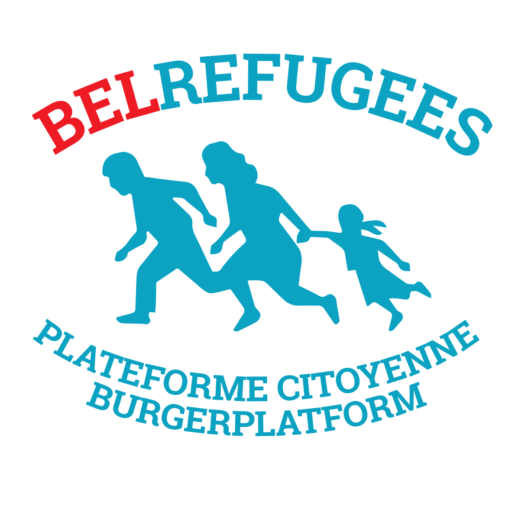Press Release – 01/10/2025
Today, seven organizations, including humanitarian groups, are publishing the fifth edition of their Belgian report on the “non-reception” policy and its harmful consequences for asylum seekers in Belgium. The report highlights how Belgium’s unlawful policy of refusing reception to asylum seekers has entered a new and alarming phase in 2025, with recent government measures further restricting access to reception facilities and essential services for those seeking international protection.
Médecins Sans Frontières, Médecins du Monde, Vluchtelingenwerk Vlaanderen, CIRÉ, BelRefugees, Caritas International, and the Humanitarian Hub denounce Belgium’s policy of non-reception and its negative impact on asylum seekers in our country. This policy does not resolve the humanitarian crisis—it institutionalizes it. The recent statement by Minister Van Bossuyt claiming that no asylum seeker is sleeping on the streets is simply untrue, as these seven organizations can attest on a daily basis.
Download the report
A systematic policy of non-reception
Despite over 15,000 condemnations by national and international courts, the Belgian federal government is doubling down on its unlawful strategy of systematic exclusion, making it the most restrictive migration policy in the country’s history. Thousands remain homeless without access to healthcare or social support.
Measures taken by the new “Arizona” coalition government, formed in January 2025, include reducing the number of reception places, systematically excluding certain groups (in particular single men and asylum seekers granted protection status in another EU country, known as “M status”), and the complete elimination of social services for many asylum seekers.
These changes, adopted by Parliament in July and in force since August, have nevertheless been widely criticized by the Council of State, the UN Refugee Agency (UNHCR), and numerous civil society organizations.
Humanitarian impact: thousands left without shelter or care
The consequences are devastating. The Belgian government is blatantly disregarding its legal responsibilities, with heartbreaking effects in key areas:
- Housing: Fewer than 1 in 10 (9%) asylum seekers using the Humanitarian Hub in Brussels are accommodated in a Fedasil center. The vast majority sleep on the streets, in emergency shelters, or in squats, with waiting times for emergency housing often longer than the stay itself.
-
Healthcare: Access to medical care is severely restricted. Humanitarian organizations report that nearly 9 in 10 (88%) homeless asylum seekers suffer from health problems directly linked to precarious living conditions, including skin diseases, respiratory infections, and untreated pain.
-
Mental health: Psychological wellbeing is gravely impacted. A large majority of asylum seekers seek help for severe distress, with widespread cases of post-traumatic stress disorder, depression, and anxiety. Specialized care is largely inaccessible.
- Legal and social support: Homeless asylum seekers often lack even basic information about their rights and face complex procedures without legal assistance.
Unaccompanied minors in distress
Unaccompanied minors are especially vulnerable. Many avoid official shelters due to mistrust of authorities, leading to overcrowding in alternative refuges and increased exposure to high-risk environments. Medical studies reveal high levels of malnutrition and health issues among these minors.
A call for immediate action
The government’s stated goal of making Belgium less “attractive” to asylum seekers has only deepened hardship and entrenched a humanitarian crisis.
Civil society organizations, the Council of State, the UNHCR, and the Council of Europe have all called for urgent action, including:
- Upholding the right to reception and a dignified life, as enshrined in international and Belgian law;
- A significant increase in reception capacity;
- Maintaining social support systems for asylum seekers.
Conclusion
The current policy of non-reception is unacceptable. As long as people are left on the streets and court rulings remain unenforced, Belgium will continue to deliberately violate its legal and moral obligations. It is time to end this deterrence policy against asylum seekers and to implement a reception system that is humane, dignified, and rights-based.

